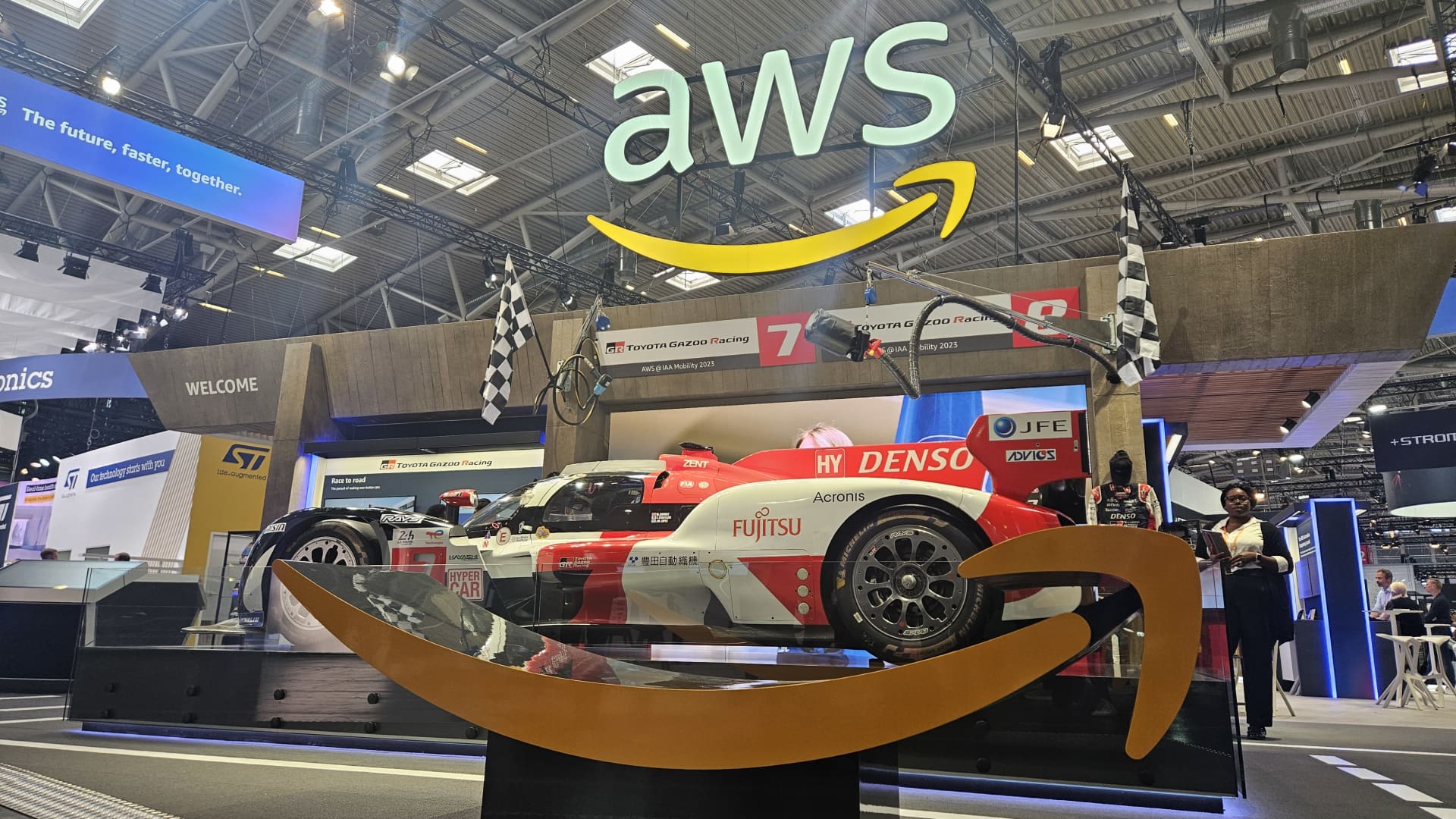MUNICH — You’d be forgiven for thinking that the IAA, one of the world’s biggest motor shows, is actually a technology conference, after tech giants like Amazon, Qualcomm and Samsung all showed up for this year’s event.
Their presence underscores demand for traditional automakers to boost the technology in their vehicles, from software to hardware, as they look to catch up with Tesla in the electric car future. Ramping up technology features is also essential to meet buyer expectations in China.
“Tesla and the Chinese start-ups. This is the two-way force they [traditional automakers] are experiencing, driving them to have more user experience in the car,” Mohit Sharma, automotive research analyst at CCS Insight, told CNBC.
They can’t do it alone. Carmakers are looking at tech firms for help, while also trying to work on items like software in house.
Part of Tesla’s global success has come down to its technology in a number of areas, from batteries to Autopilot — its advanced driver assistance system (ADAS), which uses semi-autonomous driving features. The screen within Tesla cars is also akin to that of a smartphone.
Those features are what rival automakers are trying to build and get ahead on.
Carmakers are developing their own operating systems
There are two major operating systems in the smartphone sphere — Google’s Android and Apple’s iOS. That’s not the case in the car world, when it comes to the ever popular infotainment systems and screens.
Auto firms are now focusing on developing their own operating systems, so that using car screens more closely resembles working with the apps of a smartphone.
To that end, Mercedes-Benz revealed further details at the IAA about its self-developed operating system called MB.OS, which will help power various features from the giant screen across the dashboard to the voice assistant in its upcoming EVs.
Swedish EV player Polestar this year created a joint venture with Xingji Meizu — a smartphone maker owned by Chinese auto giant Geely — and plans to launch its own smartphone in December, when the Polestar 4 car begins delivery to customers. Meizu is making an operating system for Polestar cars based on its own product, called FlyMe. The idea is that users would be able to have a seamless experience between the smartphone and Polestar’s operating system in the company’s cars.
U.S. chipmaker Qualcomm was also in attendance at IAA. The company is making a big push into the automotive space, where its chips can be used to help power artificial intelligence applications within vehicles. One example it showed was a car assistant that could find a recipe for chicken enchiladas and add the ingredients to a shopping list.
It’s not just about the screen — automakers are also looking into using all parts of the car to display information. BMW said the Neue Klasse EV models it unveiled on Saturday will have what it calls Panoramic Vision, a heads-up display which projects information on the windscreen at the driver’s eyeline.
To make the drive as comfortable as possible, U.S. EV maker Lucid showed off the massage feature of the seats in its Air Midnight Dream Edition car.
Driverless features push
A big part of the focus of Tesla technology has surrounded its Autopilot ADAS. No car can operate autonomously — at least from a legal perspective — but automakers are ramping up the driverless features and capabilities.
Tesla is perhaps one of the furthest ahead with its ADAS features, followed by young Chinese players like Xpeng and Nio.
More traditional automakers are looking to catch up in the area of driverless features. BMW said its Neue Klasse cars will come with the next-generation of its ADAS, which is being built using Amazon’s cloud technology and Qualcomm’s chips.
Tech is key in China
Many automakers aspire to become major players in the world’s biggest and highly competitive electric vehicle market, China. In a bid to differentiate themselves from rivals, Chinese firms have talked up the tech features of their vehicles, from software to ADAS capabilities — and Chinese customers expect the latest tech perks.
“It’s not just good enough to bring a great European design to China, you have to be very, very special about what you offer to the market when it comes to software,” Polestar CEO Thomas Ingenlath, told CNBC in an interview Tuesday.
Heeding that sentiment, foreign companies from BMW to Mercedes are looking to invest heavily in tech development, as they aim to boost EV sales in China.
Volkswagen CEO Oliver Blume on Wednesday said that the company is ramping up its number of software engineers in China.
“We want to operate with China speed in China,” Blume said at the IAA conference.
